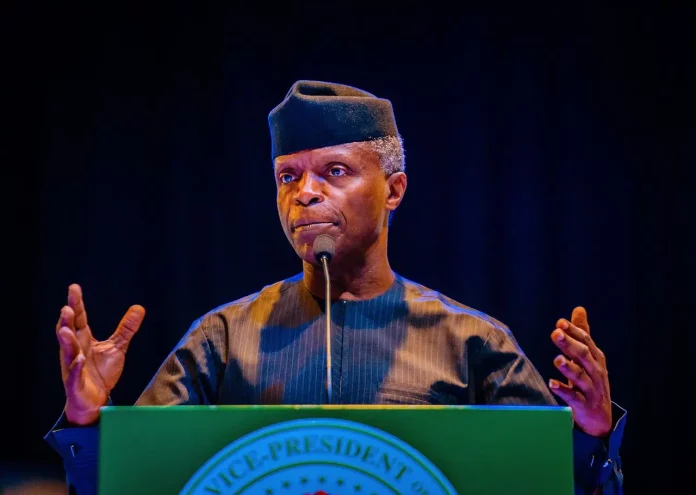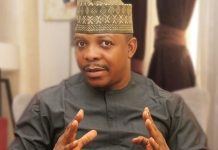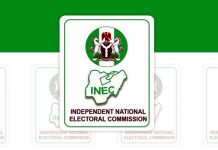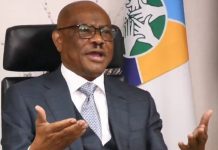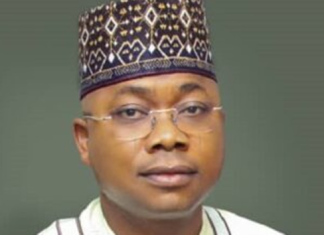In some areas of the nation during the most recent elections, voter suppression incidents were reported, according to Vice President Prof. Yemi Osinbajo.
It was wrong, according to the Vice President, to deny Nigerians their constitutional right to vote. He expressed disapproval of political actors who preyed on public anxieties.
He asserted that in the struggle for control, the leadership elites must refrain from playing with stereotypes that alienate or divide any segment of the nation.
According to a statement by his media assistant, Laolu Akande, Osinbajo made this claim at the National Institute of Policy and Strategic Studies’ (NIPSS) inaugural Policy Making and Good Governance Lecture Series, held in Kuru, Plateau State.
In order to create a new Nigeria that is just, equitable, and prosperous for all, he noted that the elites should act with great responsibility.
Before they have an impact on political contests, he said, deliberate efforts must be made to address ethnic profiling and prejudice.
Osinbajo said in his speech
“During these elections, we saw political actors take advantage of people’s concerns and anxieties about ‘outsiders. Strongly condemnable efforts to take away someone’s ability to vote in any community on the grounds that they don’t belong there, he said.
Additionally, the vice president said that “when ethnic or religious prejudices are weaponized for political purposes, we are confronted with a lethal potentially destructive situation.”
He continued, “Historically aware and patriotic elites all recognise that, beyond what the letter of the law asserts, there are lines that cannot be crossed in the pursuit of political power.
One of these strategies is the deliberate exploitation of sectarian sentiments and the arousal of ethnic animosities to enlist a political constituency. It is risky because it’s an attempt to incite conflict and hatred in order to gain support.
The Vice President stated in a speech that also addressed the future of creating a new Nigeria that “the most prosperous places are countries that have learned to harness diversity while building ever more inclusive institutions.”
The majority of legal codes, including our own Constitution, expressly forbid discrimination against people based on their identity, the author noted.
There is a conflict between this new Nigeria and the old Nigeria as perceived by a younger generation that is more used to political mobilisation based on identity. But the Nigeria that our youth are consciously or unconsciously constructing needs to be elevated and validated. We want this kind of future.
“Let us never forget that even though we may speak different languages, belong to different tribes, and profess diverse creeds, we are bound, above all, by the language of a shared hope, by our common humanity as Nigerians, and a supreme faith in the possibility of our country,” he said.
Speaking out against discrimination in any form, the vice president added, “If we are truly committed to economic growth, then we must also be committed to creating inclusive communities and enhancing social cohesion. In other words, poverty is the only thing that thrives in a hostile environment between tribes. Because of this, it’s crucial to prioritise justice, healing, and a stronger commitment to the principles of integration.
Prof. Osinbajo continued, “Where the forces of primordial division and polarisation are harnessed for the purpose of electoral gain, the venom of such devices remains and continues to poison communal relations, setting neighbour against neighbour. We have seen firsthand the disastrous effects of using prejudice as a political weapon in countries like Rwanda.
Professor Osinbajo emphasised the importance of political elites, saying that they “have a responsibility to discipline themselves in the pursuit of their political ambitions and exercise of power to ensure that the fabric of our communities is not rent asunder.”
“When elites compete irresponsibly and unequally, they promote the idea that anything goes, which leads to instability. Throughout our history, we have repeatedly witnessed this dynamic in action. Our democracy is in danger from a competitive model that disregards all moral restrictions and boundaries. Politicians have a responsibility to behave responsibly and carry out their rivalry.
The Vice President emphasised the need for Nigerians to take lessons from the Rwandan genocide, which resulted in about a million deaths. He also mentioned the number of people who died in Nigeria’s civil war, which he said was fueled by prejudice and what he called the “exploitation of prejudice and the incitement of hatred against ethnic communities.”
“We talk about the civil war, but we seem to ignore the fact that it is the manipulation of ethnoreligious sentiment that eventually boiled over into that tragedy,” he said. We pay for that healing process on a daily basis because the demons that were let loose by that brutal battle between brothers have not yet been fully contained. We should never permit this part of our history to repeat itself.
In order to prevent tragedies fueled by prejudice and bigotry, Prof. Osinbajo emphasised the importance of inclusion and unity across political and ethnic lines.
The Vice President suggested passing legislation to protect society from the perilous exploitation of ethnic sentiments and stated that “the Rwandese took deliberate steps to ensure that that tragedy would never be repeated, including even a memorial to the dead.
The strict enforcement of laws prohibiting the use of rhetoric that is racially or religiously charged, as well as a number of laws that criminalise divisive attitudes and behaviours, are more crucial. A framework for fair, just, and unified interactions among our people must also be provided for and put into place, which is a difficult task.
Furthermore, he noted that “during elections, people do not suddenly start hating one another.
“While political actors may appeal to racial or sectarian feelings during an election, these social and cultural tensions do exist and are just below the surface. The prevalence of racial profiling and other types of everyday discrimination must be taken into account as we consider the lessons learned from this election cycle moving forwards.
In highlighting Nigeria’s distinctiveness, Prof. Osinbajo said that the nation’s diversity should be used for good rather than for political gain and self-interest.
Read Also: Buhari meets with governors, head of EFCC, others in Saudi Arabia
There is an understanding that, despite being a reality, sociocultural diversity is neither a strength nor a weakness. The most affluent nations are those that have mastered utilising diversity while constructing even more inclusive institutions.
“Despite her diversity, I don’t think Nigeria is exceptional or unique. I strongly disagree with the school of thought and public discourse that characterises the diversity of ethnicities and religions in our nation as a serious flaw. Our diversity is not a flaw or a curse, but rather a blessing and a strength, he said.
Asserting that “inclusion is essential to prosperity,” Prof. Osinbajo then called for a fair, just, and more inclusive society.
“So, can we overcome racial or religious prejudice and create a cohesive country? Yes, it is, but it is a journey rather than an event, and it’s probably the most crucial issue in nation-building, he emphasised.
The vice president cited nations like Singapore, Tanzania, and Rwanda as examples of how they dealt with and overcame national prejudices and said that Nigeria could do the same to deal with the underlying issues that all prejudices in our society bring about.
He asserts that “in all the nations that have made progress towards overcoming prejudice, leadership has been essential. He emphasised in particular how these countries’ elites behaved.
The ruling classes in both nations agreed that cohesion and peaceful coexistence needed to be consciously prioritised and pursued. This is the difficulty of leadership in our nation. Elites must exercise self-control in the pursuit of their political goals and the use of their influence in order to prevent the fabric of our communities from being torn apart.
“We must understand that everything will be lost if we sacrifice peaceful coexistence on the altar of partisan politics.”
The Vice President noted that “in the 21st century, human capital is the true wealth of nations,” further exploring the connection between a nation’s diversity and shared prosperity.
This means that places that have figured out how to draw and keep the most diverse pool of skilled human resources are overwhelmingly succeeding.
Diversity, according to Prof. Osinbajo, “also offers a broad range of cultural, philosophical, and intellectual approaches for solving problems.
“How much quality capital a state can attract will determine its chances of growing, and the more wealthy the human capital pool at a state’s disposal, the more taxes it can collect to pay for governance and social services. In this scenario, tribal politics will exacerbate poverty because they will only alienate the human capital that a state sorely needs for development.
The Vice President offered suggestions and stated that fairness and justice were essential components in advancing the nation.
The Vice President urged civil society and the media to exercise responsibility in projecting particular narratives in addition to the political elite’s duty to promote unity.
That responsibility falls on civil society as well, perhaps even more so on the media. The media has two duties to fulfil. Particularly in our multicultural and heterogeneous contexts, it must be extremely aware of the narratives it is projecting and the way it frames disputes as an institution that is uniquely influential in influencing public perceptions and attitudes, he said.
To support his argument, Prof. Osinbajo mentioned the surgery performed on his right femur in July 2022 in a Nigerian hospital.
He explained: “I had surgery on my right femur at a hospital in Lagos on July 16, 2022. Naturally, I had the thought that the surgeons, paramedics, and anesthesiologist would have complete control over me as I lay on the operating table and prepared to be put under anaesthesia. They had to be trusted with my life.
One was from the South East, the team’s leader was from Delta State, and some team members were Muslims and others Christians. One of them may not have even believed in God, in my opinion. However, it didn’t appear to matter. They were the authorities.
We manage to ignore prejudices based on race or religion when making choices that have a significant impact on our lives and the lives of our children. This is the mentality we must always adopt to create the country of our dreams,” he said in conclusion.
Prof. Osinbajo responded to enquiries from participants during the interactive session with the NIPSS faculty and course participants. Questions ranged from the necessity of creating a new Nigeria to how to reduce ethnic and religious prejudice.
In separate remarks, the Gbong Gwom Jos, HRM, Jacob Gyang Buba, and the Governor of Plateau State, Hon. Simon Lalong, thanked the Vice President for his commitment to raising academic standards at the National Institute and noted that since he assumed office as VP, the institution has advanced significantly.
Read Also: Nigerians abroad promise Tinubu, Shettima technical support
The inaugural Policy Making and Good Governance Lecture Series, according to Prof. Ayo Omotayo, Director General of NIPSS, is just one of the many innovations made by the organisation as a result of Prof. Osinbajo’s innovative leadership and practical advice.
In particular, he pledged to make the institute Nigeria’s and Africa’s leading think tank, and he gave the Vice President assurances that the management would always uphold the high standards set before them.
The newly constructed quarters for Nigeria Army participants at the Institute were officially opened by the Vice President following the lecture, who was joined by other dignitaries.
The Vice Chancellor of the University of Jos, Prof. Tanko Ishaya, the Deputy Governor of Plateau, Prof. Sonni Tyoden, the Speaker of the Plateau State House of Assembly, Hon. Yakubu Sanda, the General Officer Commanding of the 3 Armoured Division of the Nigerian Army, Maj. Gen. Abdul Khalifa Ibrahim, who was in attendance to speak on behalf of the Chief of Defence Staff, and other individuals were also in attendance.
Join Television Nigerian Whatsapp Now
Join Television Nigerian Facebook Now
Join Television Nigerian Twitter Now
Join Television Nigerian YouTUbe Now

